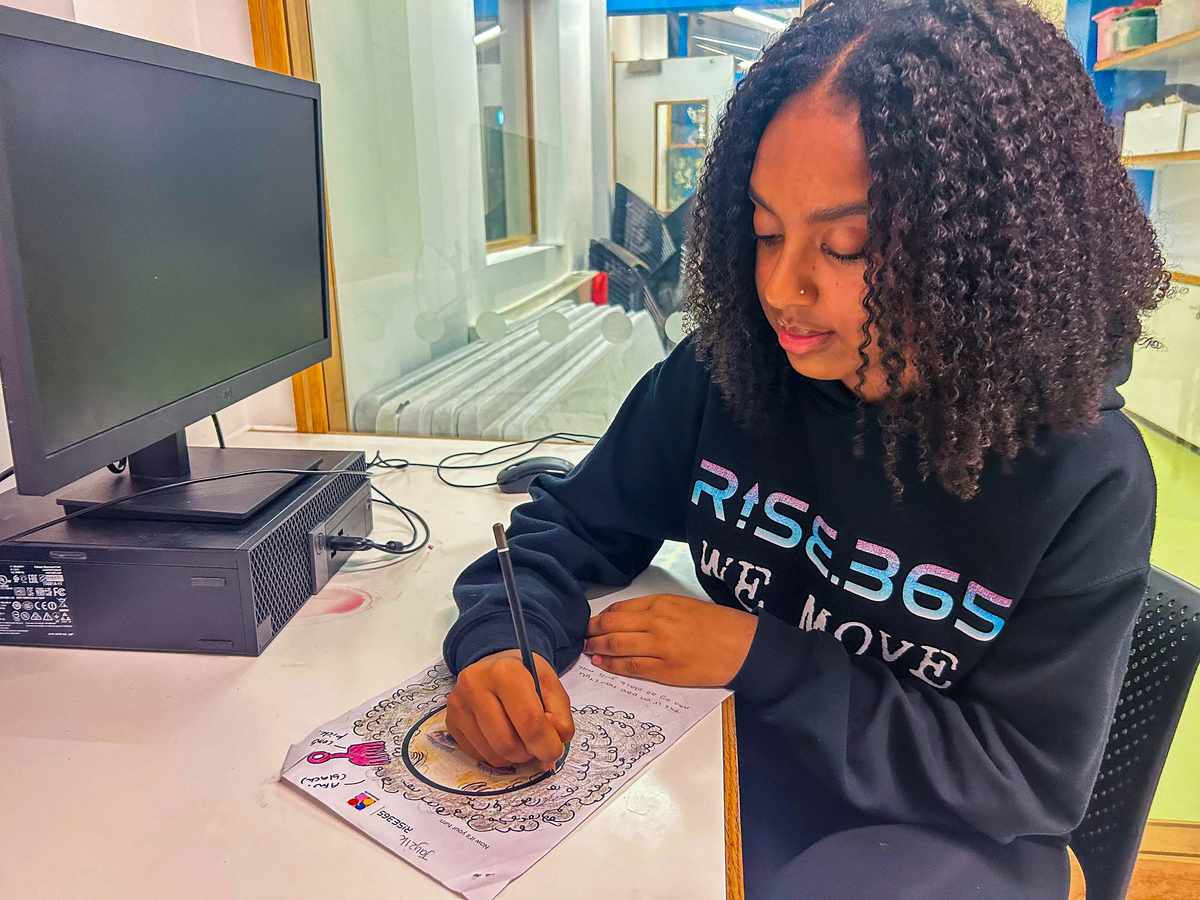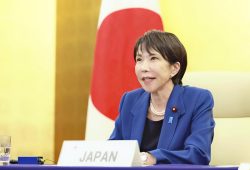
Student and Rise 365 young designer Jayzik Duckoo draws Afro hair emoji at the Concorde Youth Club in Hackney, east London, on Oct. 21.
14:57 JST, November 5, 2024
LONDON (Reuters) — Aiming to break down beauty stereotypes and make the digital world more inclusive, a group of young students and professionals from London have designed what they hope will become the first ever emojis of Black and mixed-race hairstyles.
The project, a partnership between youth-led organization RISE.365 and PR agency Good Relations, aims to tackle texturism, a form of discrimination where Afro hair is often perceived as “unprofessional,” “unattractive” or “unclean,” they said.
There are nearly 4,000 emojis — symbols that represent human emotions or objects online — but none feature Black or mixed-race hairstyles. RISE.365 and Good Relations took matters into their own hands to change that.
A group of young people sketched what the emojis should look like, and then designers came up with the final product.
“[The emojis] would break down the society standards of your hair having to be straight to be seen as desirable,” said Jayzik Duckoo, a 17-year-old who worked on the project. “I hope people wear their hair proudly.”
Four emojis were created featuring afros, braids, cornrows and locs. They will be submitted to Unicode, the California-based group responsible for emojis, in April 2025 for consideration.
Googling “Afro hair” could help the emojis’ acceptance, as Unicode considers how frequently the term associated with the symbol is used, RISE.365 said.
Unicode did not reply to a Reuters request for comment.
Olivia Mushigo, senior creative behind the project, said she hoped the emojis would make people “feel empowered and … actually seen.”
The 28-year-old has never experienced discrimination because of her hair, but her young brother has, she said.
“My little brother will have an emoji that looks like him to hopefully boost his confidence and show him that his hair is beautiful,” she said. “On a more personal note, I finally have an emoji that looks like me, that I can identify with.”
A poll of RISE.365 members — a total of 104 respondents — showed 61% had experienced discrimination or bullying because of their hair. A 2023 study by the CROWN Research Studies showed 66% of Black women change their hair for a job interview.
Vanita Brown, who designed the emojis, said a reason why such emojis were still not available was due to Eurocentric beauty standards being seen as the norm.
Lack of representation in stock imagery is also an issue, Brown said, and Mushigo highlighted the diversity gap in tech companies, where Black people are underrepresented.
“Hopefully with greater diversity and inclusivity among tech teams, we will start to see more emojis that actually represent the diversity of the world we live in,” she said.
Top Articles in World
-

China Confirmed to Be Operating Drilling Vessel Near Japan-China Median Line
-

China Eyes Rare Earth Foothold in Malaysia to Maintain Dominance, Counter Japan, U.S.
-

Japan, Qatar Ministers Agree on Need for Stable Energy Supplies; Motegi, Qatari Prime Minister Al-Thani Affirm Commitment to Cooperation
-

North Korea Possibly Launches Ballistic Missile
-

10 Universities in Japan, South Korea, Mongolia to Establish Academic Community to Promote ICC Activities, Rule of Law
JN ACCESS RANKING
-

Univ. in Japan, Tokyo-Based Startup to Develop Satellite for Disaster Prevention Measures, Bears
-

JAL, ANA Cancel Flights During 3-day Holiday Weekend due to Blizzard
-

China Confirmed to Be Operating Drilling Vessel Near Japan-China Median Line
-

China Eyes Rare Earth Foothold in Malaysia to Maintain Dominance, Counter Japan, U.S.
-

Japan, Qatar Ministers Agree on Need for Stable Energy Supplies; Motegi, Qatari Prime Minister Al-Thani Affirm Commitment to Cooperation


























